Supporting informed clinical decision-making with easy access to Labcorp data to support patient care
With more than 45 billion test results, real-time test results delivery and access to partial results, clinicians have access to the data that matters most, when it's needed most. Labcorp’s single, unified data platform includes lab results for approximately 50% of the US population, delivering patient lab results to the point of care, regardless of who ordered the lab test or which Labcorp facility performed the test.


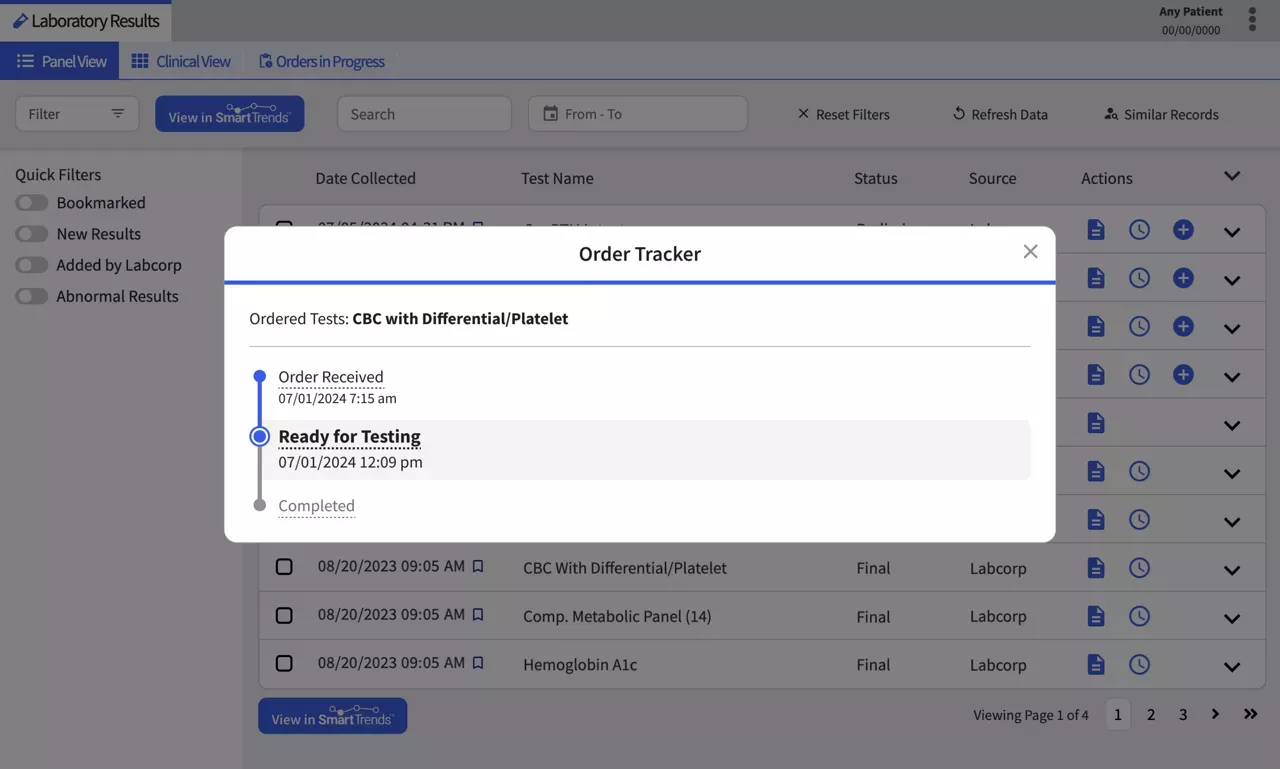
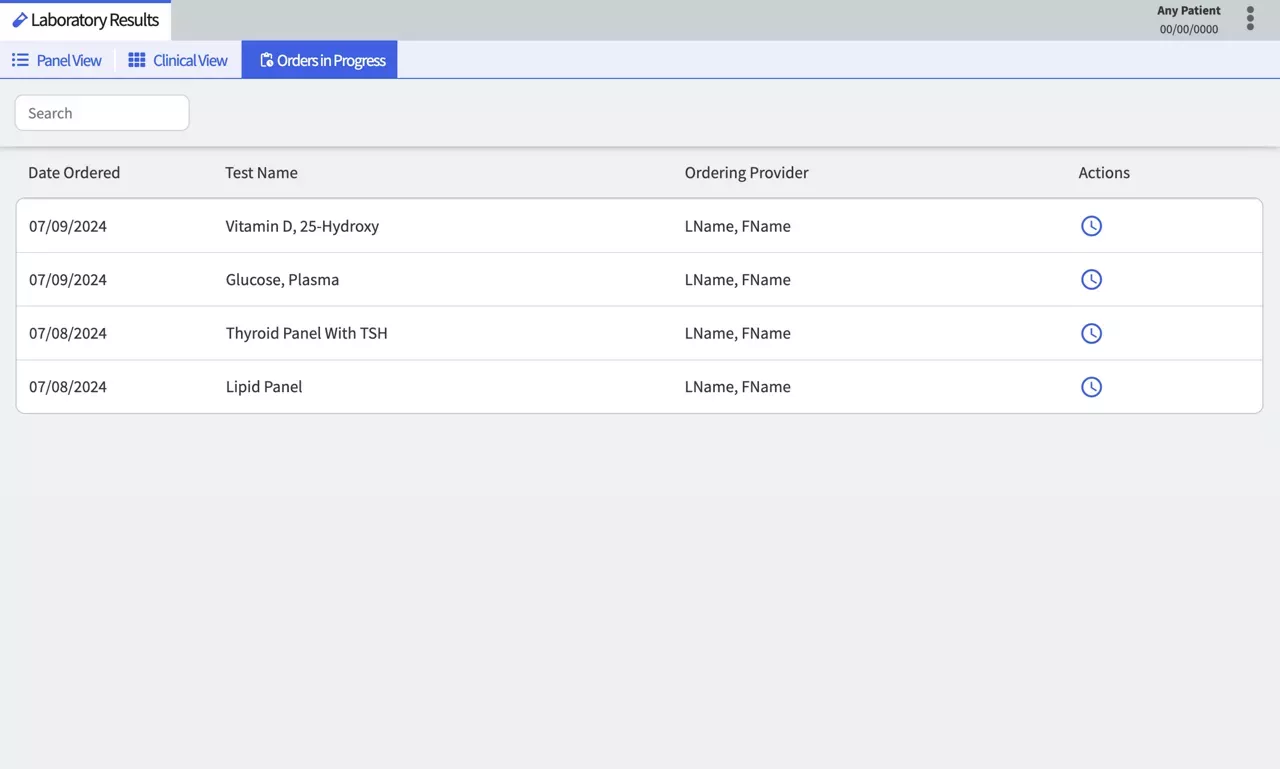
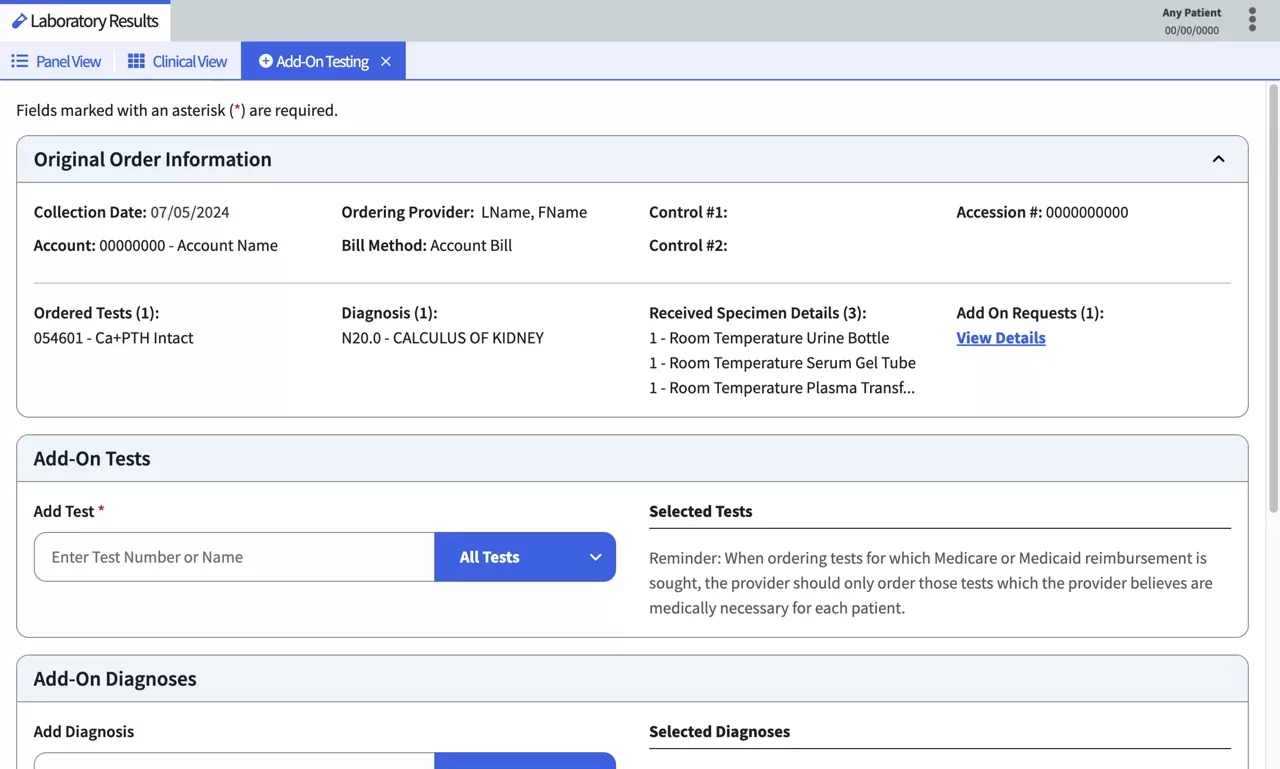
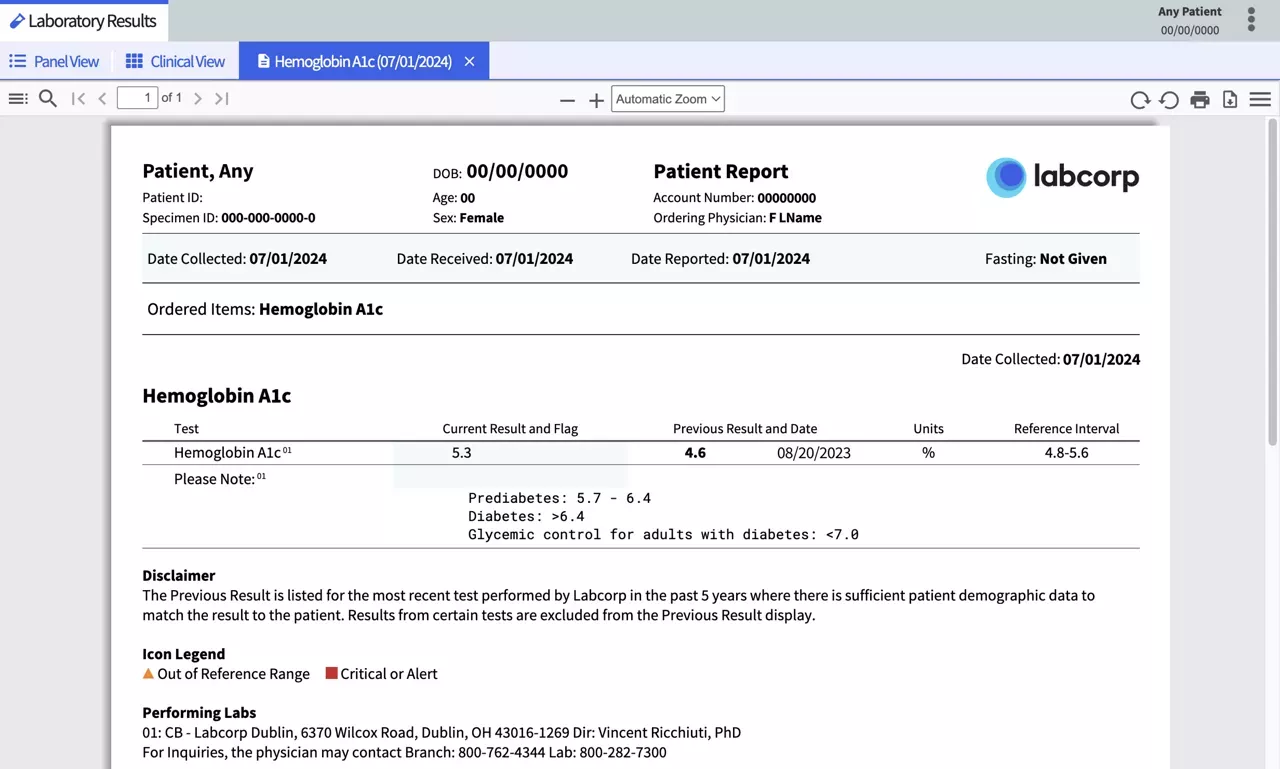
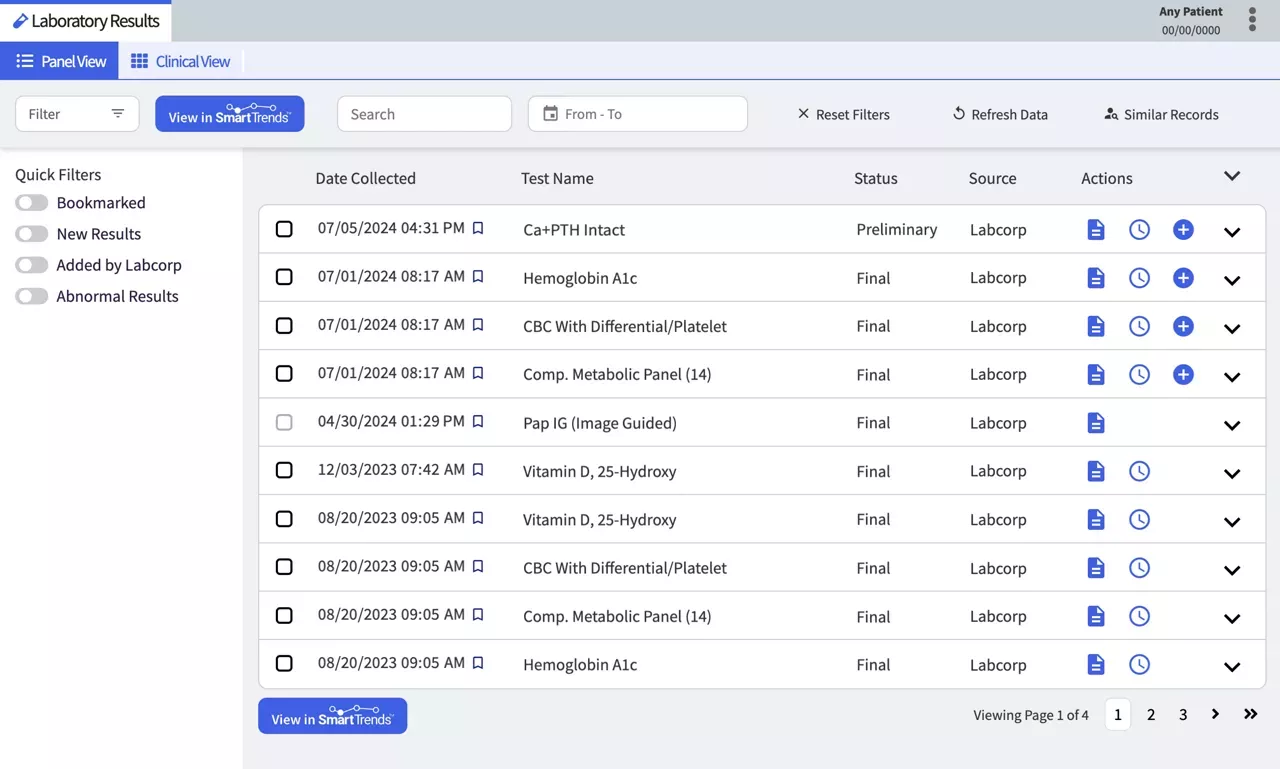




.jpg)

